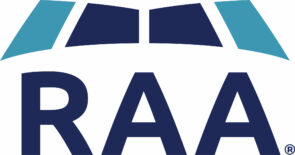MEDICAL COSTS IN RETIREMENT
- Posted by Gary Krasnov, AIF®, CLTC®
- On April 17, 2018
- health care, Health Savings Account, HSA, planning, retirement, Saving for Retirement
When we meet with people across the country to discuss retirement, most first think about investment accounts, pension plans, or Social Security decisions. For many retirees, the cost of health care might seem like an afterthought – something that is important, but doesn’t impact the big picture.
We know, however, that planning for and managing the cost of health care can be the difference between having the retirement of your dreams or just getting by.
MEDICAL COSTS HAVE CONTINUED TO RISE
In 2017, Fidelity estimated that the average couple retiring at 65 will pay $275,000 in medical expenses after leaving the workforce. This was up $15,000, or 5.8%, from 2016(1). While these figures alone may sound big, it’s important to note that Fidelity’s data does not include the cost of over-the-counter medications, most dental procedures, or long-term care. For many retirees, $275,000 should be the low-end estimate for medical costs in retirement.
As an example, if you have one million dollars saved for retirement, you can expect almost a third of your nest egg to go toward medical expenses. For many clients, this can come as a surprise, especially if they imagined the majority of their nest egg going toward everyday living expenses, vacations with family, or a grandchild’s college tuition.
The good news is that there is an investment account specifically designed to address medical costs both now and in retirement… the HSA.
WHAT IS AN HSA?
A Health Savings Account, or “HSA,” is an investment account specifically designed to cover medical expenses. Unlike most investment accounts, you may deposit pre-tax earnings into the account, let these earnings grow tax-free, and then you can take qualifying distributions tax-free. For this reason, the HSA has become one of the most popular tools for managing the rising cost of health care in recent years and is one we frequently discuss here at RAA. Like most things, there are plenty of rules governing who qualifies and how distributions may be used. If you’d like to dive deeper into this topic, read this article about using an HSA as a retirement account.
HOW CAN AN HSA BE USED?
An HSA can be used for many health care costs before retirement, but there are four primary ways to leverage this account once you exit the workforce.
1. LONG-TERM CARE INSURANCE COVERAGE
In 2017, the median cost for one year of nursing home care was $97,455, and this is expected to rise to $130,971 over the next ten years(2). To protect against this expense, many retirees purchase long-term care insurance, and an HSA can be used to pay premiums on a tax-qualified long-term care policy.
2. CLOSING THE MEDICARE GAP
For airline employees entering retirement before age 65, there can be a “gap” between employer-sponsored health care coverage and when Medicare kicks in at age 65. While an HSA cannot be used to buy private health insurance, it can be used to pay premiums through an employer-sponsored COBRA policy.
3. PAYING MEDICARE PREMIUMS
At age 65, you can begin using funds from an HSA to cover Medicare premiums. The beauty of this approach is that you are paying for Medicare premiums using funds which were not taxed when placed in the account and have grown tax-free ever since. Compare this to paying for Medicare using after-tax earnings, and the difference in “true cost” can be significant.
4. DAY-TO-DAY EXPENSES
Once you turn 65, you may use your HSA for non-health care related expenses. You will have to pay income taxes on these distributions but, since you are retired, your income tax bracket will typically be lower than when you were fully employed.
LEARN MORE
Medical costs can really add up during retirement, but there are steps you can take today to minimize the risks associated with the rising cost of health care. If you’d like to learn more about how an HSA can help support your financial goals, the RAA team is just a phone call away. Request a call to speak with an advisor and learn more about how an HSA may help you increase your retirement savings and cope with the cost of health care in retirement.



0 Comments